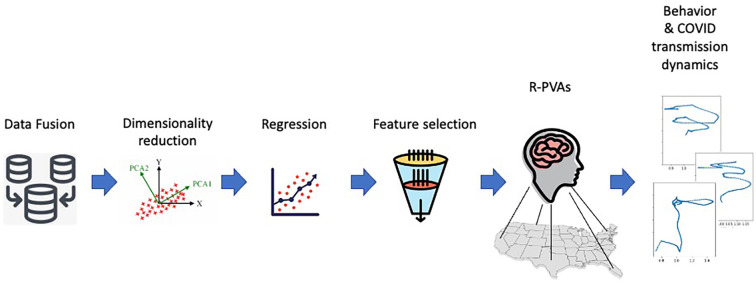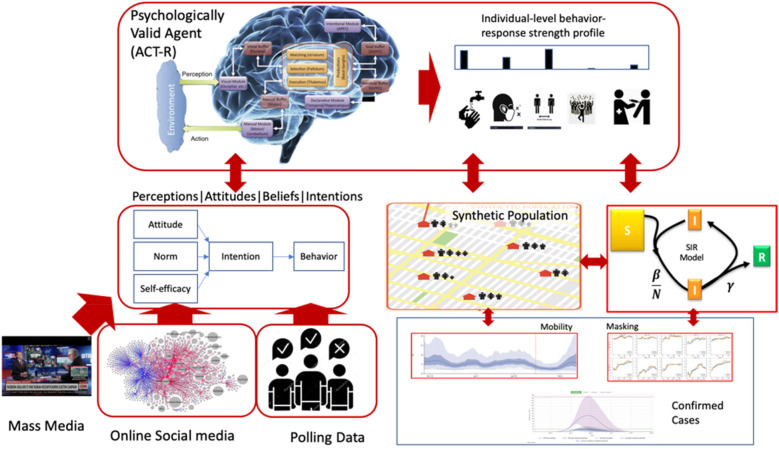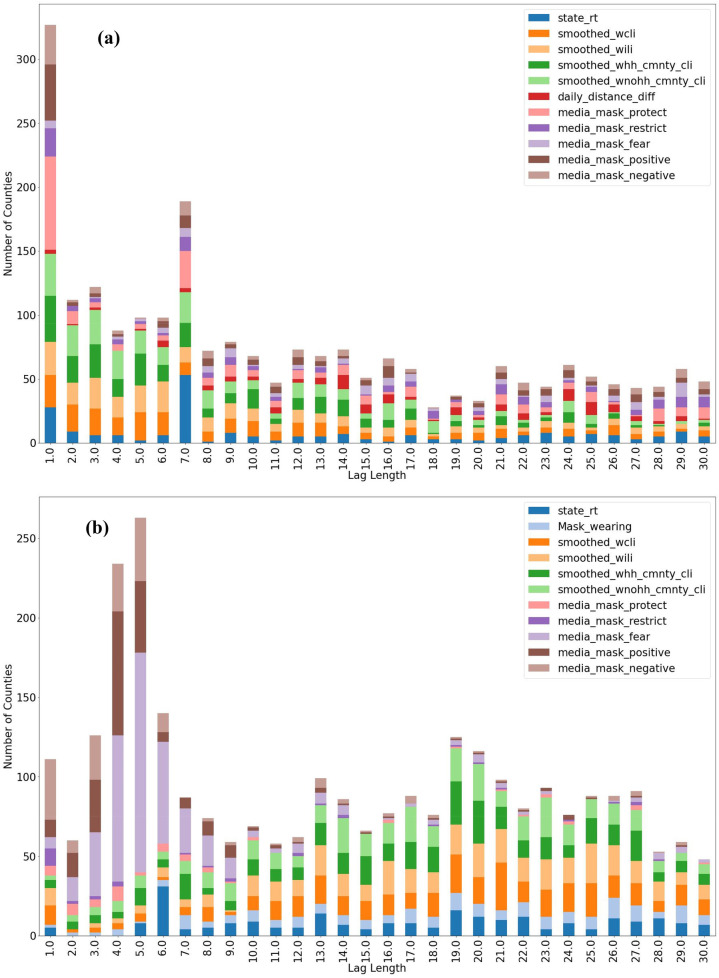Prediction of U.S. daily mask wearing and social distancing using psychologically valid agents during three waves of COVID-19.
Frontiers in epidemiology
Pub Date : 2025-05-14
eCollection Date: 2025-01-01
DOI:10.3389/fepid.2025.1532553
引用次数: 0
Abstract
We present Regional Psychologically Valid Agents (R-PVAs) as a modeling approach to predicting transmission-reducing behaviors and epidemiology. The approach builds upon computational cognitive theory and formalizes aspects of theories of individual-level behavior change. We present R-PVA models of social distancing and mask wearing in response to dynamics in the physical and information environments in the 50 U.S. states. The models achieve strong goodness-of-fits for predicting day-to-day mask-wearing (R 2 = 0.93) and social distancing (R 2 = 0.62) for the first three waves of COVID-19, prior to the rollout of vaccines.



利用心理有效因子预测三波新冠肺炎期间美国人每日佩戴口罩和保持社交距离
我们提出区域心理有效代理人(R-PVAs)作为预测减少传播行为和流行病学的建模方法。该方法建立在计算认知理论的基础上,并形式化了个人层面行为改变理论的各个方面。我们在美国50个州提出了社会距离和口罩佩戴的R-PVA模型,以响应物理和信息环境的动态。在推出疫苗之前,这些模型在预测前三波COVID-19的日常佩戴口罩(r2 = 0.93)和社交距离(r2 = 0.62)方面达到了很强的拟合优度。
本文章由计算机程序翻译,如有差异,请以英文原文为准。
求助全文
约1分钟内获得全文
求助全文

 求助内容:
求助内容: 应助结果提醒方式:
应助结果提醒方式:


